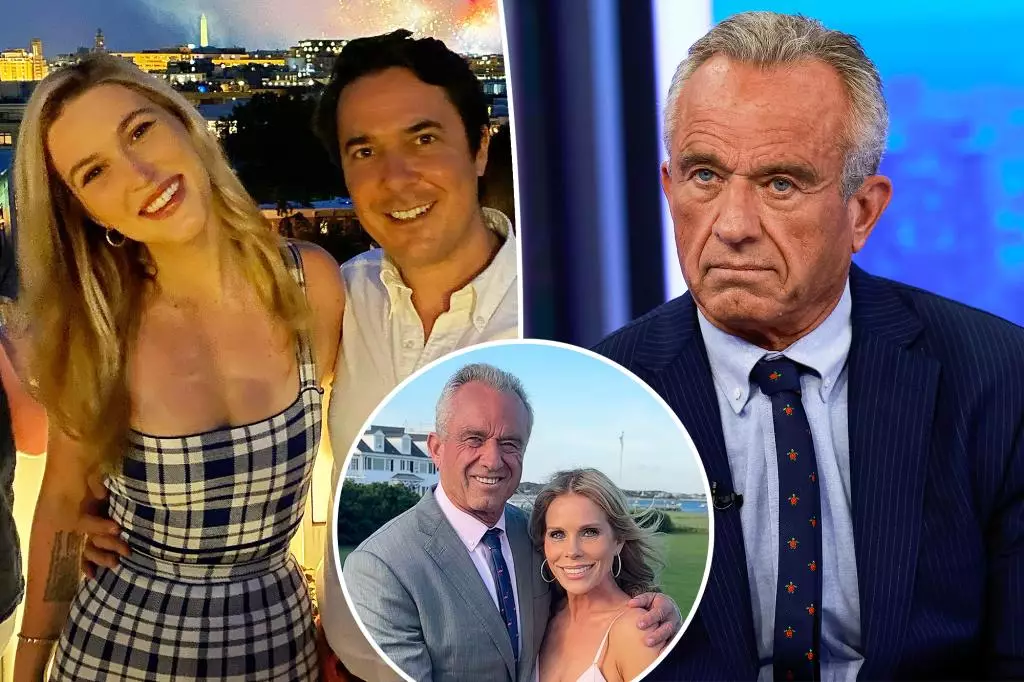The unsettling narrative surrounding New York Magazine reporter Olivia Nuzzi and her controversial involvement with Robert F. Kennedy Jr. has captured widespread attention, unraveling a tale rife with personal conflict, emotional turmoil, and public speculation. This article seeks to extract and analyze the deeper implications of their rumored affair while exploring the multiple facets that make this situation one of both professional and personal intrigue.
At the heart of this scandal is the character of the alleged relationship between Nuzzi and JFK Jr., characterized by descriptions such as “toxic,” “psychotic,” and “unhealthy.” These terms, coming from Nuzzi’s own accounts, paint a picture of a deeply troubled liaison. It raises significant questions about emotional vulnerability in the face of powerful personalities. Kennedy’s supposed desire to “possess” and “impregnate” Nuzzi not only showcases a disturbing dynamic of control but also points to underlying issues regarding consent and agency in relationships where one party holds considerable public status.
Moreover, the complexity of Nuzzi’s situation extends beyond personal feelings. The former president’s scion is described as a “sex addict,” adding another layer of dysfunction to their interactions. When a power imbalance is present, as is often the case with individuals of significant social stature, the consequences can be profound, leading to emotional exploitation or manipulation.
The implications of this affair extend far beyond the personal lives of those involved. Nuzzi has found herself on leave from her position at New York Magazine amidst allegations of cheating on her former fiancé, Politico reporter Ryan Lizza. This fallout encapsulates the intersection of personal behavior and professional consequences—an all-too-frequent theme in the culture of modern journalism.
Lizza’s claims that Nuzzi had been unfaithful for nearly a year add to the complexities of their relationship. The legal indicators, particularly Nuzzi’s request for a no-contact order, suggest a depth of emotional and possibly physical conflict. Nuzzi’s assertion that Lizza stalked her and engaged in tactics intended to intimidate her back into their relationship raises alarms regarding personal safety and mental well-being. The question arises: how do one’s romantic entanglements intersect with their professional obligations and reputations?
The legal ramifications have caught the attention of the public, including allegations of blackmail and coercion, which underscore serious emotional and psychological abuses that can occur in fractured relationships. Lizza’s denials of these allegations suggest a defensive posture that many individuals take when feeling threatened by the consequences of their behavior; one must wonder how often this kind of manipulation plays out in relationships, both high-profile and commonplace.
Furthermore, Nuzzi’s legal strategies hint at a possible disconnect between public persona and private reality. Her claims that Lizza attempted to manipulate public perception through third parties reveal a potential for vindictiveness that can occur post-separation. These allegations raise valid concerns regarding privacy rights amidst personal conflicts and the ethical responsibilities of journalists who are inherently part of the story.
Robert F. Kennedy Jr.’s association with a high-profile figure like Nuzzi propels the situation into the limelight of celebrity culture, characterized by intense public interest. The juxtaposition of their careers—she, an emerging voice in political journalism, and he, an established figure with a considerable family legacy—reveals a dynamic where public perception can often overshadow the truth of personal experiences. Nuzzi’s choice to share intimate details of her relationship through social media or interviews feeds the sensational aspects of the narrative, blurring lines between professional integrity and personal life.
Pop culture phenomena often manipulate personal crises into entertainment, which not only affects those directly involved but also reflects societal fascination with scandals. This case serves as a commentary on how high-stakes environments can foster personal conflicts that become public spectacles—often at the expense of human dignity and emotional health.
The saga of Olivia Nuzzi and Robert F. Kennedy Jr. might illustrate the complexities of navigating personal relationships within the public realm. The intertwining of their lives raises essential questions about power dynamics, professional ethics, and emotional intelligence. As details continue to emerge, it becomes imperative that we consider the ramifications of such relationships on both personal and societal levels. Ultimately, what may seem like mere gossip offers a window into deeper issues surrounding love, betrayal, and the relentless scrutiny that accompanies life in the public eye.


Leave a Reply